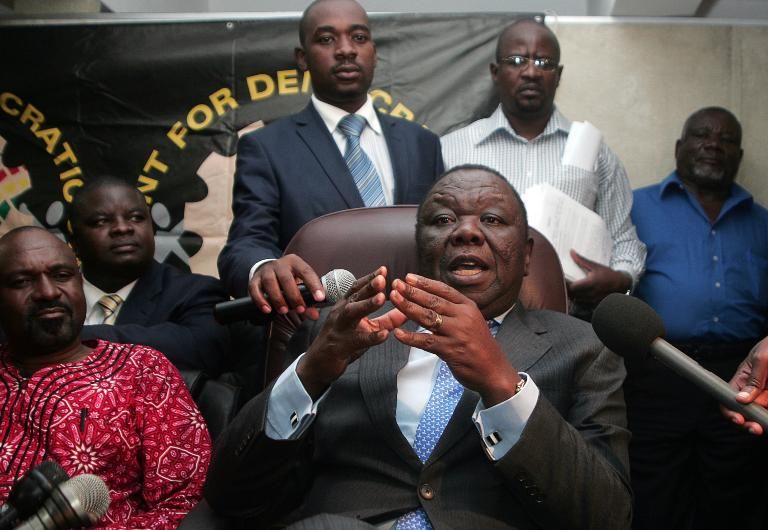Enfeebled by its electoral loss to veteran leader Robert Mugabe and a post-vote split, Zimbabwe’s opposition Movement for Democratic Change meets on Friday to elect new leaders and forge a new plan against Mugabe’s 34-year rule.
MDC spokesman Nelson Chamisa said the two-day party congress, expected to attract 7,000 delegates, was likely to retain Morgan Tsvangirai as leader and, MDC members hope, see the embattled party emerge stronger.
He said the internal feuding currently threatening to tear Mugabe’s ZANU-PF party apart was a boon for the opposition.
But analysts expect little from the MDC congress, saying the party has lost focus after its defeat to ZANU-PF in last year’s general elections.
Rushweat Mukundu, an analyst with the political think tank Zimbabwe Democracy Institute (ZDI), said the congress was “almost a non-event.”
Splits have been prompted by arguments over Tsvangirai’s continued leadership, despite a series of election defeats and personal scandals.
A party faction headed by Tsvangirai’s erstwhile deputy Tendai Biti moved to suspend him, and the veteran trade union leader promptly responded by expelling all involved in the bid to cast him aside.
Independent political analyst Takura Zhangazha said chances of the MDC recovering from its split were distant.
The dire state of Zimbabwe’s economy may offer the MDC a chance at renewal.
Takavafira Zhou, a political scientist from Masvingo State University said the MDC should offer a policy in contrast to ZANU-PF.
Formed in 1999, the MDC with former trade unionist Tsvangirai as leader has presented the most formidable challenge to Mugabe’s stranglehold on power.
But it was weakened by Mugabe’s strongarm tactics and splits among party officials.
In 2006, Tsvangirai parted ways with his deputy Gibson Sibanda, secretary general Welshman Ncube and a host of other party officials over a decision to contest in senatorial elections.
Tsvangirai’s MDC recovered enough to win the majority of parliamentary seat in 2008, becoming the first opposition party to beat ZANU-PF since independence in 1980.
In the same election Tsvangirai won the first round of the presidential race but lost in the run-off which was marred by violence that claimed the lives of around 300 opposition supporters.
To end the poll violence and stem the economic downturn, Tsvangirai and Mugabe formed a power sharing government with Tsvangirai as prime minister.
The tenure of the power-sharing government brokered by the regional SADC bloc elapsed last year leading to new elections won by Mugabe.

COMMENTS
Please let us know if you're having issues with commenting.